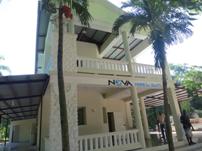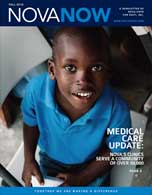History and Culture
Haiti shares the island of Hispaniola with the Dominican Republic. A former French colony, Haiti was to become the first independent black republic, and the only nation in history to arise from a successful slave revolt. Haiti also became the second self-determining nation in the Americas when it declared its independence on January 1, 1804. Nearly all Haitians speak Kreyòl Ayisyen (Haitian Creole), a language based on French and African dialects with some Taíno and Spanish influences. French is the official language.
Haiti has had a turbulent history with political instability, fiscal challenges and numerous coups d’états. Unfortunately this has translated over the years to loss of industrial base, the importation of basic staples including sugar and rice that at one time had been cultivated locally, a terribly deteriorated infrastructure, unemployment rates greater than 2/3 of the work force population and minimal governmental services. Even potable running water and electricity are rare. Haiti’s most recent state of political turmoil occurred following an uprising that forced the controversial President Jean Bertrand Aristide to resign on February 29, 2004. On February 7, 2006 René Préval was finally elected president in Aristide’s place – and took office in May of that year, but despite high hopes there was little change. On April 4,2011 the vocalist Michael Martely (Sweet Mickey) won popular presidential vote and was sworn in on May 14, 2011. Since then there has been lack of political agreement over the needed platforms for change, but optimism prevails.
The Economy
Haiti is the poorest country in the Western Hemisphere, 80% of the population lives in abject poverty. Two-thirds of all Haitians depend on agriculture that is archaic in its application and remains vulnerable to damage from frequent natural disasters, exacerbated by the country’s widespread deforestation. An effective industrial base does not exist in Haiti resulting in pervasive unemployment and increasing crime and violence.
Quality of life
According to United Nation’s 2007/2008 Human Development Report, Haiti is very low on the list, at the 146th place in the world populations. In fact, Haiti has the lowest ranking in the Western Hemisphere with only the sub-Saharan African countries ranking lower. Reported life expectancy at birth is 59 years of age. The prevalence of malnourishment is 48% of the general population and contributes to the startling and dismaying life expectancy figures; purified water is not available to 46% of the population and 76% of the population lives on less that US$2.00 per day!
Health Issues
Some of the many health challenges facing Haitians include infectious diseases such as Typhoid, Malaria, Hepatitis B and C, Parasitosis, Dengue fever, Cholera, Tuberculosis and HIV/AIDS. The underlying endemic malnutrition increases susceptibility to tropical diseases. Death often ensues from illness that is easily curable, especially infectious gastroenteritis causing uncontrolled diarrhea in children.







